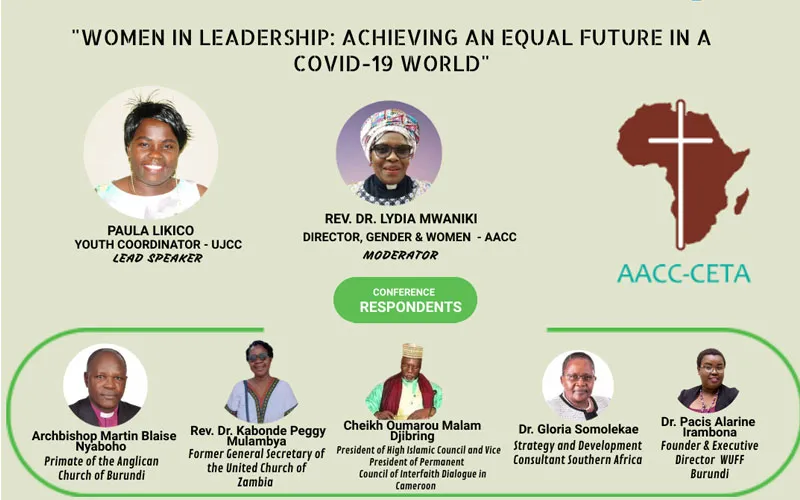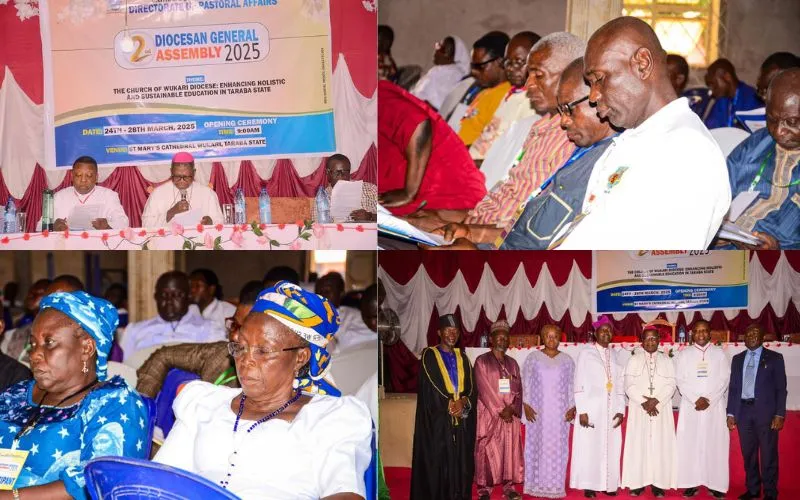Organizers of the event noted that although efforts have been made to close gender gaps, leadership positions in Africa are still dominated by men in religious, political and economic spheres.
“Even when women have employment opportunities, patriarchal social norms and tradition in some societies dictate that a career be secondary to a woman's primary place as a housewife,” AACC leadership says in a statement shared with ACI Africa ahead of the March 8 event.
In the statement, the faith-based leaders add, “Although there are several biblical foundations for gender justice, some biblical texts, which subordinate women to man and forbid women from speaking in public, continue to be invoked to reinforce gender disparity in patriarchal societies where women do not lead men.”
According to the representatives of Christian leaders in Africa, gender disparities do not only restrain women from exploiting their God-given potential to serve in public and private spaces, but also accelerate acts of violence against women and girls.
To strengthen the position of women in the society, which is under threat owing to COVID-19, Ms. Paula urged leaders in all spheres of life to speak up for women.
(Story continues below)
“The stakeholders, including religious leaders, cultural and government leaders are supposed to speak up and implement policies and laws that protect women and promote their inclusion in leadership in the society and treat them as equals that are committed to the welfare of all,” she said.
The youth leader added, “In general, women are to be protected in all situations be it war or pandemic; the pandemic should not make women less human; women should equally assume their roles as agenda setters and demand to be listened to and should be guarded against GBV (Gender-based Violence).”
“Now that the fight against gender inequality has been slowed down by the pandemic and women are facing all kinds of inhuman challenges, the stakeholders, most especially the religious leaders, cultural leaders, government officials and others should collaborate and make intentional and concerted efforts towards supporting women to overpower the monster they are facing during the pandemic,” she further said.
In his opening remarks at the event, the General Secretary of AACC, Rev. Dr. Fidon Mwombeki, challenged both genders to work in solidarity to overcome obstacles to women empowerment.
In a statement shared with ACI Africa, Rev. Mwombeki said that it is only through working together that men and women will be able to overcome those within their ranks who might still harbor retrogressive thoughts on the issue of women empowerment.
Rev. Mwombeki who is the Director of the Department for Mission and Development (DMD) at The Lutheran World Federation (LWF), however, observed that there is cause for celebration over the milestones, which women in Africa have so far achieved.
He said that it was not so long ago that all leaders in the world were men, as well as all Ministers of defense. This, he said, had seen a huge change.
Rev. Mwombeki added that in the church, enormous changes have taken place in bringing women into leadership, and the mindset that was against women serving in previously men-only roles is now in the past.
Agnes Aineah is a Kenyan journalist with a background in digital and newspaper reporting. She holds a Master of Arts in Digital Journalism from the Aga Khan University, Graduate School of Media and Communications and a Bachelor's Degree in Linguistics, Media and Communications from Kenya's Moi University. Agnes currently serves as a journalist for ACI Africa.








